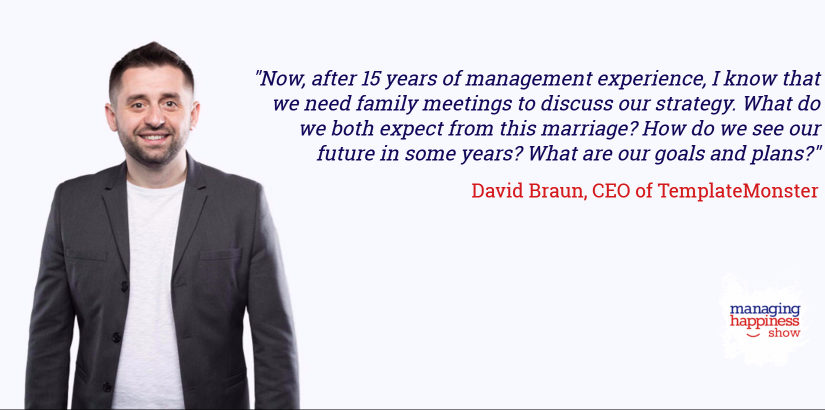The blissful idea of a happily-ever-after almost seems like a myth in today’s world.
CDC stats from 2014 show that 38.03% of marriages lead to a divorce (2, 140, 272 reported marriages and a staggering 813, 862 divorces).
Entrepreneurs probably fare worse because they are ambitious, indulgent, and desire-centric individuals. They are also notoriously known for putting their families in the backseat.
If you look around, you’ll find workaholics like Elon Musk. He’s an inspiring figure who’s touted as real-life Tony Stark, but he has repeatedly failed in his relationships.
So today, let’s look at the four major reasons why entrepreneurs fail at marriage. We’ll also discuss a few ways to solve these issues.
1. Diverging perspectives and priorities
One of the most common ways in which a marriage starts malfunctioning is when the entrepreneur dissolves their life outside of work. Sure, your company is a part of your identity. But how has that changed you as an individual?
If you always keep a ‘business comes first’ attitude, then you will invite your spouse’s jealousy and contempt of your work.
See, a marriage calls forth spending time and doing things together with your partner. If you have a non-entrepreneurial spouse, their world-view will be entirely different from yours.
So if you are switching gears and going all-in with an intense work focus, ensure your partner is on the same page. Else, you’re treading in troubled waters.
How can you sail past those tiresome product launches and long work hours?
By planning well and informing your partner about them in advance. If there’s a seasonality in your business with launch dates, then it’s possible to set these expectations.
My friend Syed Balki’s (CEO of Awesome Motive) and his wife Amanda who are very close friends of us have it figured out. When Syed is in the product launch mode Amanda has different expectations of Syed during these intense work modes.
You can have relaxing periods from work when you reconnect with your partner. I like how James Clear puts it in his Four Burners Theory article –
If you fantasize putting more work hours for the sake of it, then understand that we are past the industrial revolution.
For knowledge workers, putting in more hours doesn’t necessarily equate to a higher output. Determine your optimal performance peak – beyond which you will get diminishing returns.
Many times entrepreneurs are hell bent on their business ideas and their spouses aren’t convinced about them. In such cases, you can enforce a mutually agreeable deadline to prove that your product works, else you are out.
Darren Rowse was given a 6-month deadline by his wife ‘to make the blogging thing work.’ We all know how that went.

2. Emotional distance due to lack of communication
The business at MaxCDN was booming. I considered it an important part of my life and mistakenly thought that professional success is all that counts.
I thought my marriage didn’t need any work. The routine had taken the better of me. My thinking was clouded because I didn’t communicate with my wife.
One day, we had ‘the talk.’ And I found out that my beautiful wife had entirely different expectations from me than what I had in mind. I was taken aback but made it a point to have weekly meetings to review our expectations, our weaknesses, and the like.
In a survey of mental health professionals, YourTango.com found a lack of communication to be the number one reason that leads to a divorce.
As simple as it might sound, openly conveying your feelings and expectations with your partner is important to maintain the sanctity of your marriage.
Take a look at YouTube’s poster boy for ‘hustle’ – Gary Vaynerchuk.
He’s the CEO of a multi-million dollar successful company. And he religiously produces content on YouTube showing us how busy life gets for CEOs. In spite of his hectic schedule, he makes it a point to spare time for his kids, wife, and parents.
If you are a geeky entrepreneur (like me), then put meetings with your family and loved ones on your calendar. Come sign up for Managing Happiness and let me show you how it’s done.
3. Financial distress
Entrepreneurs are good at drafting long-term business plans and setting lofty goals. Ambition is necessary to build a successful company.
But the truth is, your passion and commitment aren’t sufficient. Most startups fail within five years – you can’t always transform your idea into a successful product.
If you are single, then you could have afforded to take more hits and keep pivoting and iterating your idea.
Since you are married, you need to consider the financial security of your family. Couples that fight over money are more likely to get divorced than those that argue over children, sex, and in-laws.
If you have been stuck with your entrepreneurial venture for a while, you have to weigh in if it makes sense to continue with experimentation. Maybe you need to accept failure and move on to the next financially viable project. Remember you’re not walking alone.
As an entrepreneur, you take pride in saying how you are your own boss and not accountable to anyone. But don’t start tying your self-worth to the success of your company. Else, even when it isn’t working out, you won’t call it quits and jeopardize your family.
In today’s startup climate, we consistently see incessant cash injection from venture capitalists. So you might feel that it’s justifiable to burn money – even use your family savings to fund your startup.
Don’t forget unit economics, though.
Losing money for an extended period, even while growing at an exponential pace, most likely won’t result in a sustainable long-term business. Triple check the viability of your idea in such cases.
The entrepreneurial road is unknown and full of risks. It’s advisable to keep an ample amount of financial backup before you jump in.
4. Bringing ghosts from work back home
Running an early stage company is exciting and a great learning experience, but it’s full of chaos. One day a key team member might quit, the next day your server might blow up, and before you realize, your scaling plan might fall flat.
So what’s the solution?
Today’s culture promotes excess.
Many naive entrepreneurs justify their quest to always remain connected with examples of 100+ work weeks by likes of Marissa Mayer and Elon Musk.
You need to understand that being busy doesn’t equate to productivity and efficiency. Getting yourself out of the workplace headspace is important to refill your creativity tanks. Remaining zoned in is detrimental to your health, and thereby, negatively affects your business.
Once you step out of your work desk, forget the stresses and problems troubling you.
It might help to build a cool down routine. You can workout to flush out the toxins in your body. You can also develop a mindfulness skill by regularly meditating using an app like Headspace – it will prove useful in stressful situations at work.
If nothing else seems like your cup of tea, then at the end of your workday, write down what’s troubling you in a notebook. The act of journaling can clear your mind and serve as a mental cue to stop thinking about work.
At home, I have family goals to keep myself productively occupied. You can do the same. Else, just spend time with your spouse and other family members – it will soothe your nerves and rejuvenate your energy reservoirs.
I’ve had a rough patch with my wife. And I now understand the importance of balancing family and work life.
Entrepreneurship brings freedom, confidence and a sense of achievement. But remember that you still need to earn the confidence and trust of your spouse. Never treat them secondary to your entrepreneurial endeavors.
Do you know any other reasons why marriages fail? Let me know in the comments below.





2 comments On Why Marriages Fail: 4 Tragic Reasons That Entrepreneurs Need To Be Aware Of
Great article, David. Keep it posted.
Thank you, David! I have a few more in the pipeline. 🙂